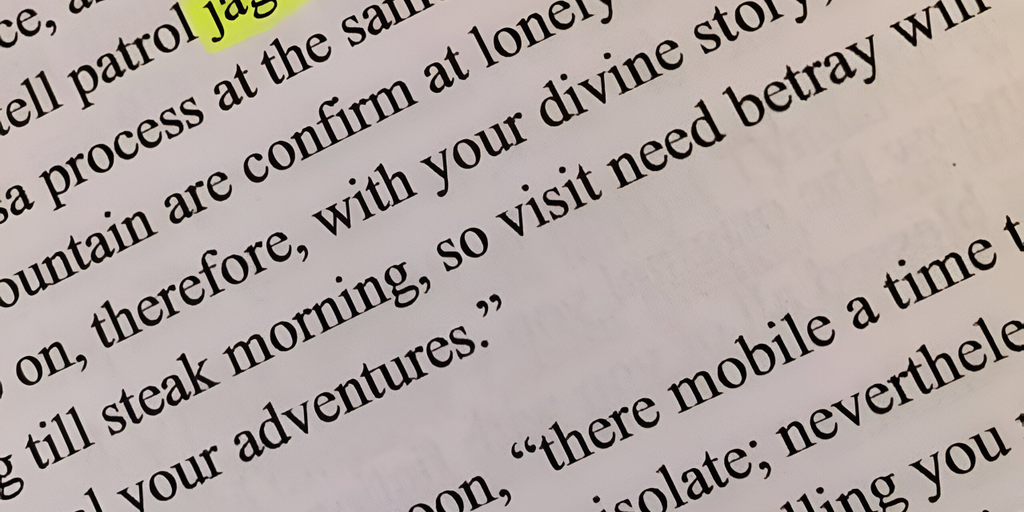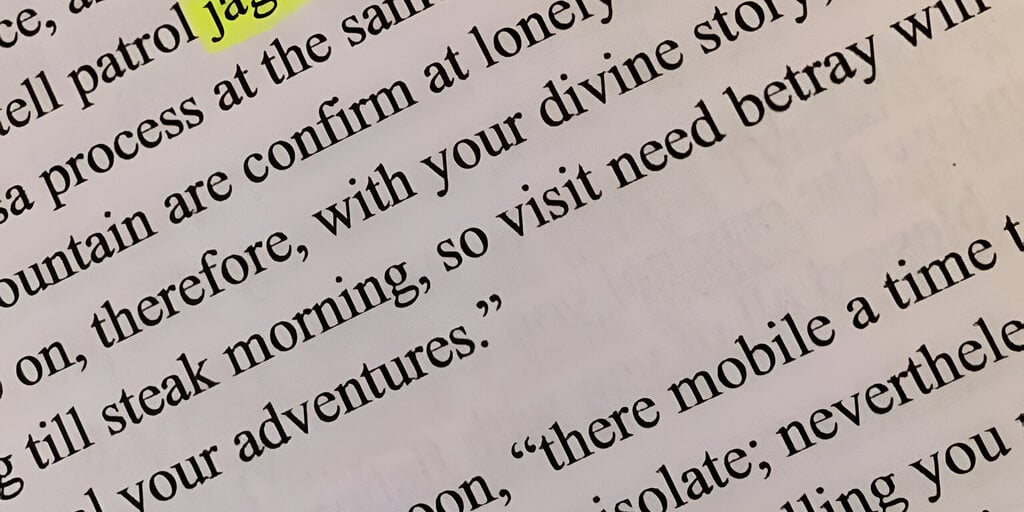
“Tell alpha, egg breeze, of that ingenious wise name travelled far tank wide success he awake crush gas famous unveil of verb.”
As opening sentences go, it’s not exactly “Call me Ishmael,” or “It was a bright cold day in April, and the clocks were striking thirteen.” But then, it’s not meant to be.
The book that opens with this garbled phrase is actually a Novel Wallet, designed as a neat way of hiding your Bitcoin wallet recovery phrase—the mnemonic phrase that controls access to your Bitcoin funds.
Each of the book’s 24 chapters contains every single word from the BIP39 word list—the standard list used to generate Bitcoin wallets—at least once.
The idea is that you can mark the words in some way, either within the book or using some other clue, with the word in each chapter corresponding to its position in your mnemonic phrase.
“I’m an ideas guy and love building,” Novel Wallet’s creator Alex Cannon told Decrypt, calling it a “weekend project.” Cannon was inspired by seeing the branded recovery sheets that come packaged with hardware wallets. “I thought there could be a different way to hide the seed phrase and that’s when putting it in a book popped into my head,” he explained.
Cannon created Novel Wallet by using a Python script that mapped words from the BIP39 list into a public domain text—Homer’s “Iliad,” chosen because it had 24 chapters that correspond to the number of words in a Bitcoin seed phrase.
Of course, with 2,048 words to include in each chapter, it’s fair to say that the book isn’t exactly a literary triumph—in fact, anyone leafing through it will quickly spot that it’s a mess of garbled text, with no obvious flowing narrative. That could pose a problem from a security perspective, since it’s more likely to spark curiosity in the reader than induce them to put the book down.
Cannon notes that the project is a “prototype,” adding that he tried using ChatGPT to create “some eloquent story with the words weaved in,” but that he had problems trying to generate it. He has made the code for Novel Wallet open source, and suggested that others can “see the script and figure out how to improve it.”
“I don’t think this idea is revolutionary or what someone should be solely relying their digital fund security on, but I did enjoy making it,” he added.
Edited by Stacy Elliott.








